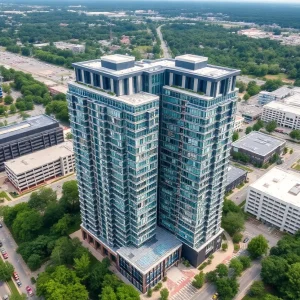Georgetown, South Carolina: A Legislative Battle Over Coastal Property Rights
In Georgetown, South Carolina, tensions have surged around coastal property management as local state Senator Stephen Goldfinch leads controversial efforts to loosen restrictions on beachfront development. The conflict has drawn attention to the fragile balance between private property rights and public beach protections, particularly amid rising sea levels and ongoing erosion.
Who is Involved?
At the center of the story is Sen. Stephen Goldfinch, a Republican who represents several coastal communities including Debordieu, Garden City, and Pawleys Island. Elected to the Senate in 2016 with a robust $180,000 in campaign contributions—largely from coastal property owners—Goldfinch has become a staunch advocate for easing governmental regulations that he argues hinder property owners’ rights.
What is Happening?
Goldfinch’s ongoing legislative actions seek to amend laws that restrict construction and development along the beaches of South Carolina. His most recent push includes efforts to allow the installation of seawalls and other protective measures that environmentalists warn could worsen coastal erosion. Governor Henry McMaster has publicly expressed concerns, vetoing key legislative provisions intended to change coastal regulations.
Where Did This Begin?
The situation has roots in the exclusive Debordieu community, where property owners have been increasingly anxious about their homes’ vulnerability to the eroding shoreline. A fundraiser hosted in 2016 at a beachfront property highlighted these concerns and ultimately helped elevate Goldfinch’s political career. Since then, he has sponsored multiple legislative initiatives aimed at assisting oceanfront landowners.
When Did This All Start?
The issue gained prominence shortly after Goldfinch took office, as erosion-related concerns have plagued the region for years. Significant legislative changes were set in motion in 2018, when Goldfinch began to advocate for shifting from a policy of “beach retreat” to one of “beach preservation.” This marked a pivotal change in approach regarding coastal management.
Why is it Important?
The implications of Goldfinch’s legislative maneuvers extend beyond simply supporting property owners. Critics argue that easing restrictions poses risks to public access to the beaches and could lead to increased erosion problems. Environmental advocates stress that seawalls and similar structures have detrimental effects, causing natural beach areas to decline further.
Goldfinch counters this narrative by emphasizing the importance of property rights and the economic benefits of maintaining existing beachfront structures. He argues that property owners, who contribute significantly to local economies through taxes and tourism, should have options for protecting their investments.
The Future of Coastal Management
As the legislative discussions continue, many experts, including coastal geologists, warn that weakening regulations could have far-reaching consequences. Rising sea levels, expected to increase by 10 to 11 inches by 2050, underscore the urgency for comprehensive policies that address both private rights and the public good. Advocates for maintaining stringent regulations believe that preserving public beaches for everyone should take precedence over the interests of a select few property owners.
The debate is expected to persist as the state legislature reconvenes, with Goldfinch poised to play a significant role in shaping the future of beachfront property rights in South Carolina. His continued advocacy reflects a complex intersection of economics, personal interests, and environmental protection amidst changing coastal realities.













